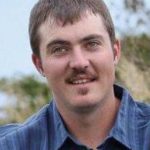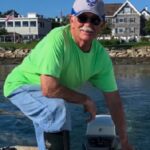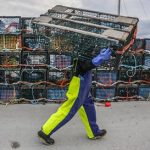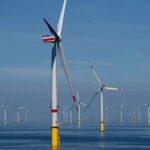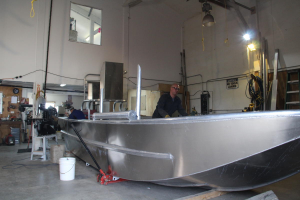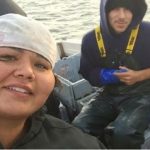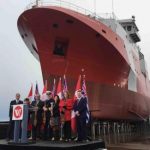Daily Archives: August 11, 2016
As US’ first offshore wind farm takes root, study indicates wind may be more powerful, turbulent than expected
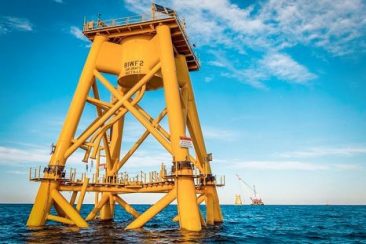 University of Delaware researchers report in a new study that offshore wind may be more powerful, yet more turbulent than expected in the North Eastern United States. The findings, published in a paper in theJournal of Geophysical Research: Atmospheres, could have important implications for the future development of offshore wind farms in the U.S., including the assessment of how much wind power can be produced, what type of turbines should be used, how many turbines should be installed and the spacing between each. The paper’s main finding is that atmospheric conditions around Cape Wind are predominantly turbulent, or unstable, which is in stark contrast to prevailing data from European offshore wind farms in the Baltic Sea and the North Sea. “By contrast, our study found that wind conditions at Cape Wind are unstable between 40 and 80 percent of the time, depending on season and time of day,” Read the story here 20:55
University of Delaware researchers report in a new study that offshore wind may be more powerful, yet more turbulent than expected in the North Eastern United States. The findings, published in a paper in theJournal of Geophysical Research: Atmospheres, could have important implications for the future development of offshore wind farms in the U.S., including the assessment of how much wind power can be produced, what type of turbines should be used, how many turbines should be installed and the spacing between each. The paper’s main finding is that atmospheric conditions around Cape Wind are predominantly turbulent, or unstable, which is in stark contrast to prevailing data from European offshore wind farms in the Baltic Sea and the North Sea. “By contrast, our study found that wind conditions at Cape Wind are unstable between 40 and 80 percent of the time, depending on season and time of day,” Read the story here 20:55
Sweden delivers salvo in lobster ban fight – Stand by for News!
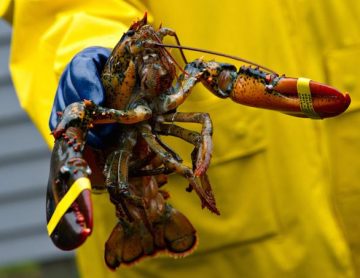 NOAA Fisheries will brief staff from the Massachusetts congressional delegation Friday on Sweden’s response to the joint U.S.-Canadian scientific effort to keep the American lobster from being included on the European Union’s list of invasive species. Carrie Rankin, spokeswoman for U.S. Rep. Seth Moulton, said the Salem congressman’s office was informed Thursday of the briefing, but was not yet made privy to the Swedish response to the scientific analysis mounted in June by the U.S. government, trade officials, marine scientists and lobster stakeholders. “We don’t know what the official response is yet because we haven’t seen it,” Rankin said Thursday. “We’ll know a lot more (Friday) after the briefing.” “NOAA is working closely with Canada and other U.S. agencies on an official response, which I can share with you when available.” Read the rest here 19:59
NOAA Fisheries will brief staff from the Massachusetts congressional delegation Friday on Sweden’s response to the joint U.S.-Canadian scientific effort to keep the American lobster from being included on the European Union’s list of invasive species. Carrie Rankin, spokeswoman for U.S. Rep. Seth Moulton, said the Salem congressman’s office was informed Thursday of the briefing, but was not yet made privy to the Swedish response to the scientific analysis mounted in June by the U.S. government, trade officials, marine scientists and lobster stakeholders. “We don’t know what the official response is yet because we haven’t seen it,” Rankin said Thursday. “We’ll know a lot more (Friday) after the briefing.” “NOAA is working closely with Canada and other U.S. agencies on an official response, which I can share with you when available.” Read the rest here 19:59
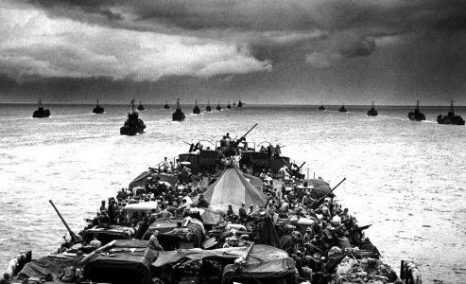
The Long Blue Line: The “Gold Dust Twins” and the battle of Guadalcanal (Part 1)
Written by William H. Thiesen, Coast Guard Atlantic Area historian – The Guadalcanal campaign began on Thursday, August 7, 1942, exactly eight months after the Japanese attack on Pearl Harbor. With its lush jungle cover and tropical waters, Guadalcanal was a picturesque contrast of deep green and azure blue. But for all its natural beauty, Guadalcanal was also a fearful place to fight a war. On “the Canal,” the Americans would fight two enemies–the Japanese and the jungle. In late summer and early fall, the island boasted a steamy climate with searing temperatures and daily monsoon-like rains. Man-eating sharks and saltwater crocodiles patrolled the local waters. Top it off with swarms of disease-ridden mosquitoes carrying dengue fever, malaria and yellow fever and it becomes clear why Marines called Guadalcanal “the green hell.” At 2:30 p.m. on August 9, Coast Guard Lt. Cmdr. Dwight Dexter came ashore to establish the Naval Local Defense Force and Anti-Submarine Patrol, also known as Naval Operating Base (NOB) “Cactus” (Cactus being the code name for Guadalcanal), or NOB Cactus. This would become the first and only known case of a Naval Operating Base manned and run primarily by the Coast Guard. Known as “the Old Man,” Dexter was,, Read the story here 18:24
Coast Guard medevacs 2 ailing fishermen from 2 different vessels off Atlantic City, NJ
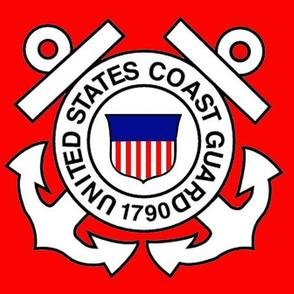 The Coast Guard medevaced two fishermen from two separate fishing vessels near Atlantic City, New Jersey Thursday. Watchstanders at Coast Guard Sector Delaware Bay received a report at 9:55 a.m. of two fishermen who were experiencing severe seasickness approximately 60 miles east of Atlantic City. Sector Delaware Bay watchstanders launched an MH-65 Dolphin helicopter air crew from Coast Guard Air Station Atlantic City to respond. The first fisherman was hoisted at 11:30 a.m. from the 94-foot fishing vessel Vila Nova Do Corvo. The second fisherman was hoisted at 12:15 p.m. from the 74-foot fishing vessel Perola Do Corvo. Both vessels are home ported in New Haven, Connecticut. The Atlantic City air crew transported the ailing persons to awaiting Emergency Medical Services personnel at Air Station Atlantic City. The EMS crew brought the survivors to AtlantiCare Regional Medical Center in Atlantic City, N.J. for treatment. Link 17:50
The Coast Guard medevaced two fishermen from two separate fishing vessels near Atlantic City, New Jersey Thursday. Watchstanders at Coast Guard Sector Delaware Bay received a report at 9:55 a.m. of two fishermen who were experiencing severe seasickness approximately 60 miles east of Atlantic City. Sector Delaware Bay watchstanders launched an MH-65 Dolphin helicopter air crew from Coast Guard Air Station Atlantic City to respond. The first fisherman was hoisted at 11:30 a.m. from the 94-foot fishing vessel Vila Nova Do Corvo. The second fisherman was hoisted at 12:15 p.m. from the 74-foot fishing vessel Perola Do Corvo. Both vessels are home ported in New Haven, Connecticut. The Atlantic City air crew transported the ailing persons to awaiting Emergency Medical Services personnel at Air Station Atlantic City. The EMS crew brought the survivors to AtlantiCare Regional Medical Center in Atlantic City, N.J. for treatment. Link 17:50
St. Mary’s Watermen: One License Revoked, Another Charged with Fraud
 A St. Mary’s County man had his commercial oyster license revoked after he was convicted last Thursday of harvesting oysters from polluted waters. Andrew Phillip Nelson, 20, of Hollywood, was charged in May with catching oysters from St. Inigoes Creek off the St. Mary’s River, an area closed to harvesting by the Maryland Department of the Environment because of pollution. A St. Mary’s County waterman has been criminally charged with running a commercial fishing fraud scheme, the Maryland Natural Resources Police reported. Robert Maurice Lumpkins, 62, of Piney Point, was charged Friday with perjury, false entry in a public record and theft between $10,000 and $100,000 for illegally obtaining the striped bass allocation of an ailing waterman and then allowing an employee to temporarily use the allocation. Read the rest here 15:41
A St. Mary’s County man had his commercial oyster license revoked after he was convicted last Thursday of harvesting oysters from polluted waters. Andrew Phillip Nelson, 20, of Hollywood, was charged in May with catching oysters from St. Inigoes Creek off the St. Mary’s River, an area closed to harvesting by the Maryland Department of the Environment because of pollution. A St. Mary’s County waterman has been criminally charged with running a commercial fishing fraud scheme, the Maryland Natural Resources Police reported. Robert Maurice Lumpkins, 62, of Piney Point, was charged Friday with perjury, false entry in a public record and theft between $10,000 and $100,000 for illegally obtaining the striped bass allocation of an ailing waterman and then allowing an employee to temporarily use the allocation. Read the rest here 15:41
The Science Suggests a Marine Reserve Zone Won’t Save Biscayne’s Reefs
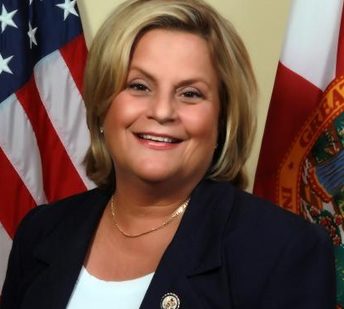 As many of you know, I have been proud to help lead a bipartisan group of Florida’s Congressional leaders, including Democrats like Sen. Bill Nelson and Rep. Gwen Graham, and Republicans like Sen. Rubio and Reps. Carlos Curbelo and Mario Diaz-Balart to ensure that Biscayne National Park utilizes the best science to conserve its environmental treasures while preserving our community’s right to access and enjoy all that Biscayne has to offer. In fact, the statutory language that created the National Park Service (NPS) – the Organic Act of 1916 – is still in force today and mandates just that! The NPS, by law, must conserve the nation’s natural resources and promote the public’s use and enjoyment of those resources. The Marine Reserve Zone proposed for Biscayne National Park that would eliminate fishing in more than 10,500 acres of prime reef fishing habitat with the goal of protecting Biscayne’s vulnerable coral reefs violates not only the spirit of the Organic Act, but also fails to use the best science to design and implement successful coral reef conservation strategies. Read the rest here 14:52
As many of you know, I have been proud to help lead a bipartisan group of Florida’s Congressional leaders, including Democrats like Sen. Bill Nelson and Rep. Gwen Graham, and Republicans like Sen. Rubio and Reps. Carlos Curbelo and Mario Diaz-Balart to ensure that Biscayne National Park utilizes the best science to conserve its environmental treasures while preserving our community’s right to access and enjoy all that Biscayne has to offer. In fact, the statutory language that created the National Park Service (NPS) – the Organic Act of 1916 – is still in force today and mandates just that! The NPS, by law, must conserve the nation’s natural resources and promote the public’s use and enjoyment of those resources. The Marine Reserve Zone proposed for Biscayne National Park that would eliminate fishing in more than 10,500 acres of prime reef fishing habitat with the goal of protecting Biscayne’s vulnerable coral reefs violates not only the spirit of the Organic Act, but also fails to use the best science to design and implement successful coral reef conservation strategies. Read the rest here 14:52
A renewed aquaculture lease for Kelly Cove Salmon stirs up Shelburne Harbour neighbours
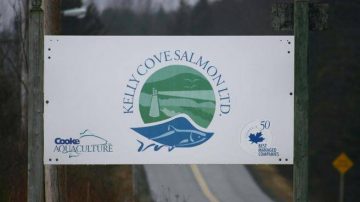 A renewed aquaculture lease for Kelly Cove Salmon in Shelburne Harbour is raising local ire before the first fish is in the water. The Nova Scotia Department of Fisheries and Aquaculture has set an August 19 deadline for public comment on lease 0602, a 10-year licence and 20-year lease for a 20-hectare suspended cage cultivation of Atlantic salmon and rainbow trout. Shelly Hipson lives in the nearby village of Atlantic and she has a laundry list of objections to the Sandy Point site, including the size of the 0602 farm. Hipson cites concerns for the local lobster industry, and a February 2014 letter to the province from the Conservation Council of New Brunswick that found part of the harbour floor in the area was essentially dead. “Where do we think that’s going, excrement from a million fish? If my septic was running out into the harbour I’d be charged,” Hipson said. Read the story here 12:25
A renewed aquaculture lease for Kelly Cove Salmon in Shelburne Harbour is raising local ire before the first fish is in the water. The Nova Scotia Department of Fisheries and Aquaculture has set an August 19 deadline for public comment on lease 0602, a 10-year licence and 20-year lease for a 20-hectare suspended cage cultivation of Atlantic salmon and rainbow trout. Shelly Hipson lives in the nearby village of Atlantic and she has a laundry list of objections to the Sandy Point site, including the size of the 0602 farm. Hipson cites concerns for the local lobster industry, and a February 2014 letter to the province from the Conservation Council of New Brunswick that found part of the harbour floor in the area was essentially dead. “Where do we think that’s going, excrement from a million fish? If my septic was running out into the harbour I’d be charged,” Hipson said. Read the story here 12:25
Expanding Antiquities Act Monument Would Set A Dangerous Precedent
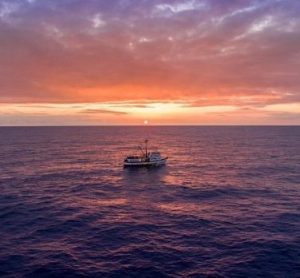 The National Oceanographic and Atmospheric Administration and U.S. Fish and Wildlife Service recently held a public meeting to discuss the proposed expansion of the Papahanaumokuakea Marine National Monument. Proponents of the expansion stand behind the request of and a group of seven Native Hawaiians for President Barack Obama to consider invoking the Antiquities Act of 1906 to expand the existing 50 mile monument boundary four-fold. The new monument would include nearly all of the Exclusive Economic Zone surrounding the Northwestern Hawaiian Islands and a whopping 60 percent of the greater Hawaiian Islands EEZ. In the case of Schatz’s proposal for monument expansion the concept of due process has been forsaken completely. The idea that sound science must be a basis for decision making has been abandoned in the face of a perceived urgency. Instead, the proposal has served to undermine the very structures we have in place to preserve a fair and equitable means of addressing public concerns about a shared resource (read up on Magnuson-Stevens Fisheries Conservation and Management Act.) Read the op-ed here 10:23
The National Oceanographic and Atmospheric Administration and U.S. Fish and Wildlife Service recently held a public meeting to discuss the proposed expansion of the Papahanaumokuakea Marine National Monument. Proponents of the expansion stand behind the request of and a group of seven Native Hawaiians for President Barack Obama to consider invoking the Antiquities Act of 1906 to expand the existing 50 mile monument boundary four-fold. The new monument would include nearly all of the Exclusive Economic Zone surrounding the Northwestern Hawaiian Islands and a whopping 60 percent of the greater Hawaiian Islands EEZ. In the case of Schatz’s proposal for monument expansion the concept of due process has been forsaken completely. The idea that sound science must be a basis for decision making has been abandoned in the face of a perceived urgency. Instead, the proposal has served to undermine the very structures we have in place to preserve a fair and equitable means of addressing public concerns about a shared resource (read up on Magnuson-Stevens Fisheries Conservation and Management Act.) Read the op-ed here 10:23
Proposal to increase commercial fishing license fees unveiled by the Washington Department of Fish and Wildlife.
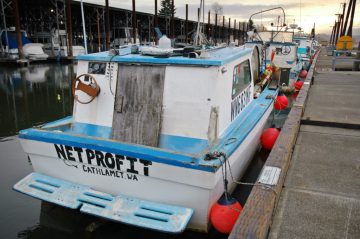 A proposal to increase commercial fishing license fees — including a new crew member charge — has been unveiled by the Washington Department of Fish and Wildlife. John Long, the agency’s regional director in Southwest Washington, told a public meeting in Vancouver on Monday the proposal would generate about $1 million from fee increases. Another portion of the proposal calls for redirecting revenue from commercial fees and an existing fish landing tax into the state Wildlife Account. Currently, that money goes into the state General Fund. Long said redirecting the money would generate an additional $3.6 million for the Department of Fish and Wildlife. The proposals require approval of the state Legislature. The agency needs $24 million in new revenue to maintain existing programs, he added. Read the rest here 09:51
A proposal to increase commercial fishing license fees — including a new crew member charge — has been unveiled by the Washington Department of Fish and Wildlife. John Long, the agency’s regional director in Southwest Washington, told a public meeting in Vancouver on Monday the proposal would generate about $1 million from fee increases. Another portion of the proposal calls for redirecting revenue from commercial fees and an existing fish landing tax into the state Wildlife Account. Currently, that money goes into the state General Fund. Long said redirecting the money would generate an additional $3.6 million for the Department of Fish and Wildlife. The proposals require approval of the state Legislature. The agency needs $24 million in new revenue to maintain existing programs, he added. Read the rest here 09:51
Low-Powered LED Lights Can Improve Snow Crab Catchability
 The Atlantic Canada snow crab (Chionoecetes opilio) fishery may have started out as a bycatch fishery over 60 years ago, but today it has become the second most valuable export fishery in Canada. In 2013, The Newfoundland and Labrador snow crab fishery had the honour (rolls eyes) of becoming the 200th fishery to receive Marine Stewardship Council (MSC) certification. Improving the catchability of snow crab, as for any fishery, has garnered significant interest, though can be challenging to achieve. At the fourth International Marine Conservation Congress, PHD candidate Khanh Nguyen, who is based at Marine Institute, Memorial University of Newfoundland, described one way snow crab fisheries can increase catchability – and without spending vast amounts of money redesigning gear. Mr Nguyen’s research has focused on exploiting the snow crab’s biology – specifically its ability to detect and react to lights. A number of marine species are known to be attracted to lights, with some commercial fisheries, such as squid jigging, using lights to lure their prey. Whereas some fisheries use relatively powerful lights, Mr Nguyen’s interest was in the use of low powered, coloured LED lights. Read the article here 09:24
The Atlantic Canada snow crab (Chionoecetes opilio) fishery may have started out as a bycatch fishery over 60 years ago, but today it has become the second most valuable export fishery in Canada. In 2013, The Newfoundland and Labrador snow crab fishery had the honour (rolls eyes) of becoming the 200th fishery to receive Marine Stewardship Council (MSC) certification. Improving the catchability of snow crab, as for any fishery, has garnered significant interest, though can be challenging to achieve. At the fourth International Marine Conservation Congress, PHD candidate Khanh Nguyen, who is based at Marine Institute, Memorial University of Newfoundland, described one way snow crab fisheries can increase catchability – and without spending vast amounts of money redesigning gear. Mr Nguyen’s research has focused on exploiting the snow crab’s biology – specifically its ability to detect and react to lights. A number of marine species are known to be attracted to lights, with some commercial fisheries, such as squid jigging, using lights to lure their prey. Whereas some fisheries use relatively powerful lights, Mr Nguyen’s interest was in the use of low powered, coloured LED lights. Read the article here 09:24
NOAA To Enlist Commercial Fishing Boats To Help Gather Data For Stock Surveys
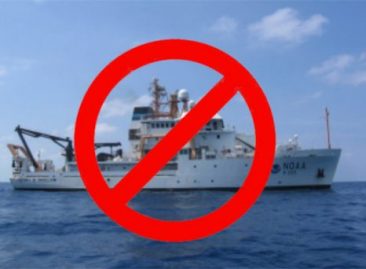 The National Oceanic and Atmospheric Administration has announced it will begin enlisting commercial fishing boats to help gather data for its often-controversial stock surveys – shifting that task at least partially away from its research vessel Henry T. Bigelow(sic). The Bigelow has experienced a number of maintenance issues, which caused a two-month delay in this year’s Spring survey. Fishing advocates are hailing NOAA’s decision, which was spearheaded by the outgoing director of the NOAA Science Center in Woods Hole. They say it represents a realization of the need for greater cooperation among regulators and fishermen. Brian Morris spoke with Don Cuddy of the Center for Sustainable Fisheries about the upcoming change. Listen to the audio report here 08:44
The National Oceanic and Atmospheric Administration has announced it will begin enlisting commercial fishing boats to help gather data for its often-controversial stock surveys – shifting that task at least partially away from its research vessel Henry T. Bigelow(sic). The Bigelow has experienced a number of maintenance issues, which caused a two-month delay in this year’s Spring survey. Fishing advocates are hailing NOAA’s decision, which was spearheaded by the outgoing director of the NOAA Science Center in Woods Hole. They say it represents a realization of the need for greater cooperation among regulators and fishermen. Brian Morris spoke with Don Cuddy of the Center for Sustainable Fisheries about the upcoming change. Listen to the audio report here 08:44
Murky outlook for the upcoming Dungeness crab season
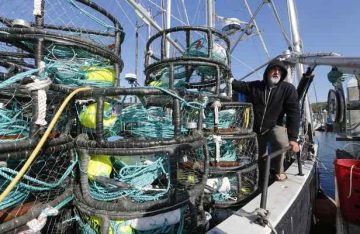 The upcoming Dungeness crab season will likely be affected by harmful algal blooms that contaminate seafood with a potent biotoxin, but the impact on commercial fishing probably won’t be as severe as it was in 2015-16, when the season was disrupted by an unprecedented closure, experts said Wednesday. At a special hearing Wednesday in Sacramento, a leading researcher on algal blooms said ocean temperatures are down this year, but still warmer than normal, and blooms are developing off the Central Coast and in other locations. But right now he is not predicting widespread blooms that would cause a statewide shutdown, as was the case last season. The lousy crab season was bracketed by weak salmon seasons linked to the drought, which has degraded river conditions for young salmon making their way out to sea. “After having a poor salmon season, a poor crab season, now another poor salmon season, it’s definitely really hard on the guys,” said Jim Anderson, a fisherman based at Pillar Point Harbor in San Mateo County. Read the story here 08:19
The upcoming Dungeness crab season will likely be affected by harmful algal blooms that contaminate seafood with a potent biotoxin, but the impact on commercial fishing probably won’t be as severe as it was in 2015-16, when the season was disrupted by an unprecedented closure, experts said Wednesday. At a special hearing Wednesday in Sacramento, a leading researcher on algal blooms said ocean temperatures are down this year, but still warmer than normal, and blooms are developing off the Central Coast and in other locations. But right now he is not predicting widespread blooms that would cause a statewide shutdown, as was the case last season. The lousy crab season was bracketed by weak salmon seasons linked to the drought, which has degraded river conditions for young salmon making their way out to sea. “After having a poor salmon season, a poor crab season, now another poor salmon season, it’s definitely really hard on the guys,” said Jim Anderson, a fisherman based at Pillar Point Harbor in San Mateo County. Read the story here 08:19

































